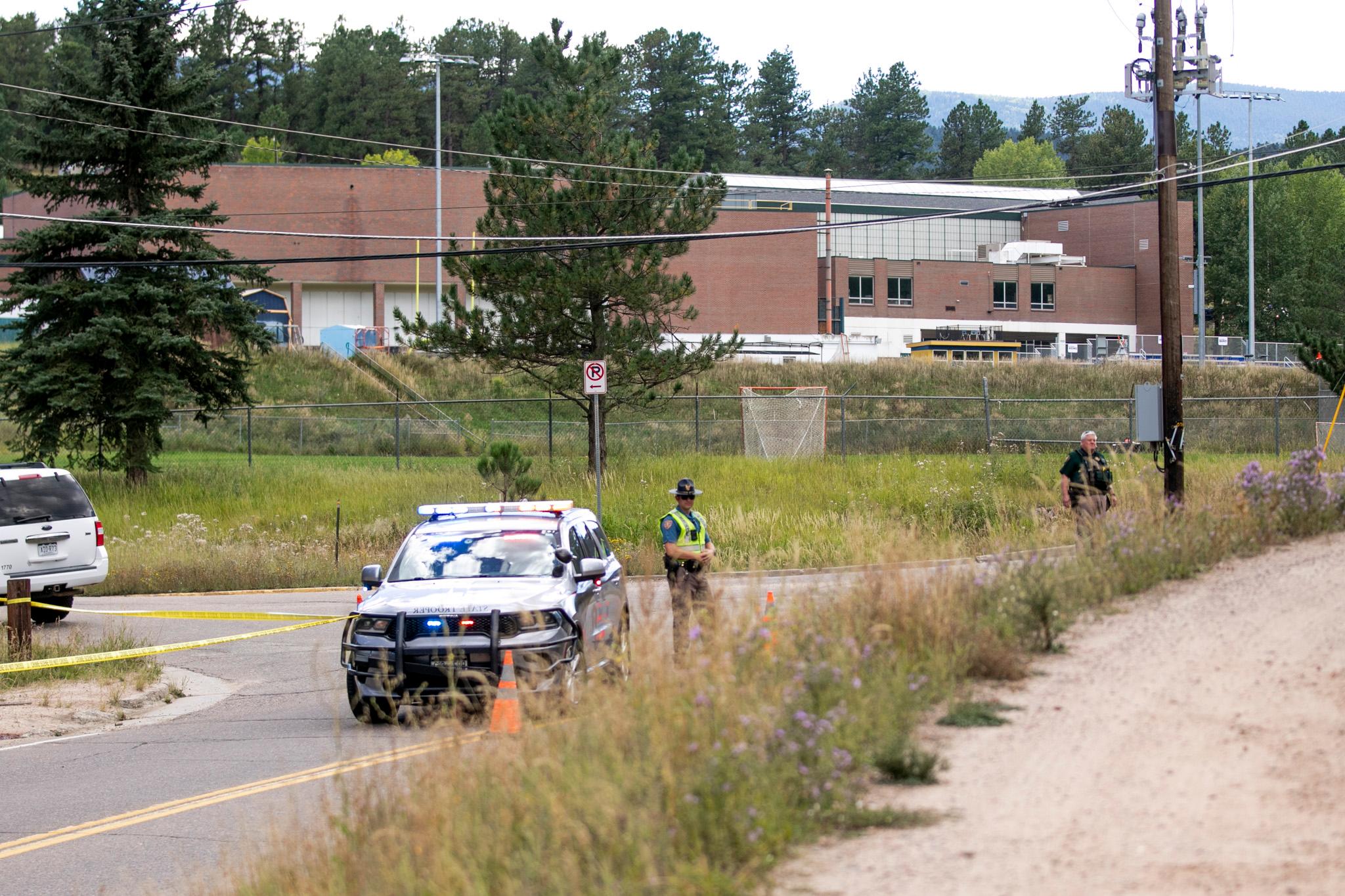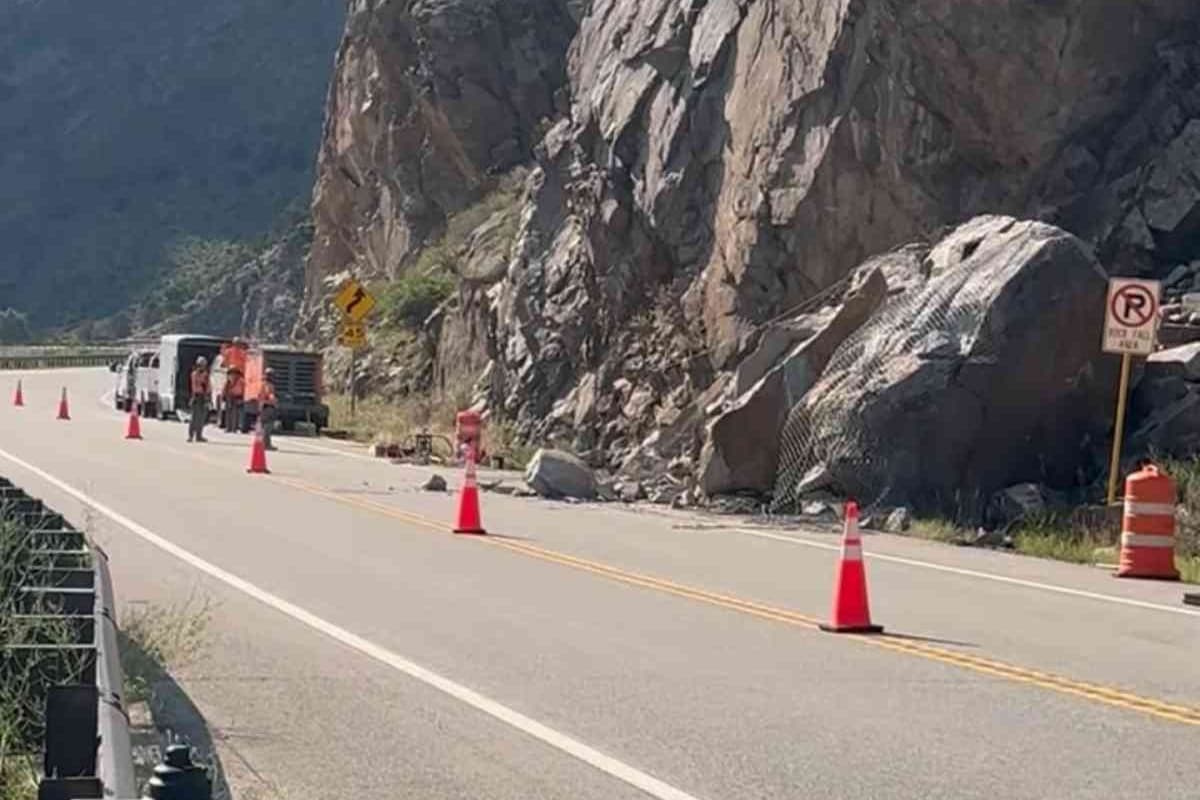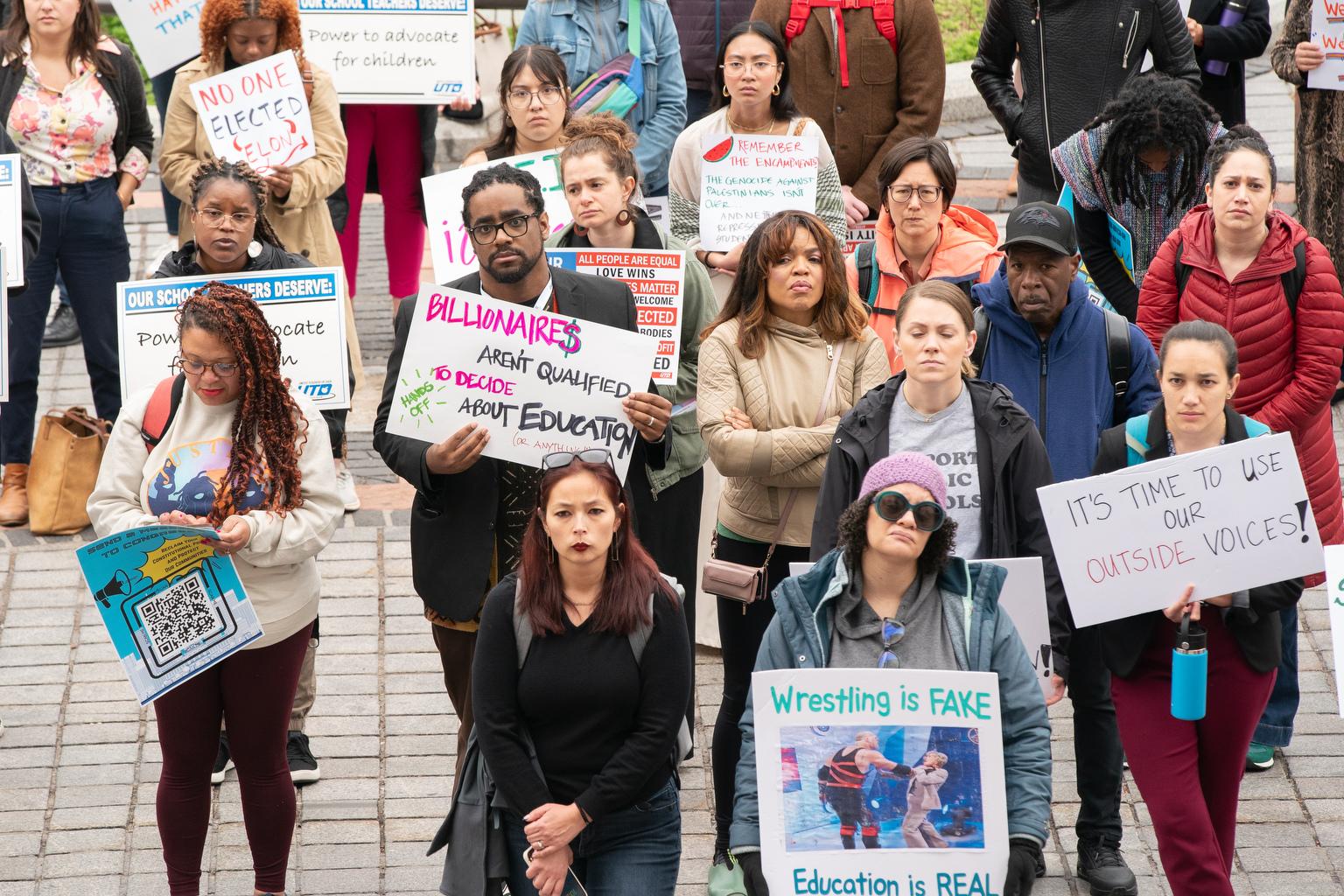
For some in the business of educating Colorado’s children and college students, Trump’s actions in Washington, D.C., have been like an earthquake — a monumental shift in the foundation and philosophy of public education. But for supporters of private school choice and those who want more flexibility for states, it’s a shake-up that’s been long overdue.
Now, Colorado is watching the waves of a quake-created tsunami gathering in the distance. Some have already made it to shore — like the end of a school fresh food program from local farmers — but it’s too soon yet to tell what the full impact will be. And many of the directives that have so profoundly shaken education systems are currently tangled up in lawsuits.
There are few certainties in how major changes will play out in schools and colleges — and the blizzard of executive orders and federal memos can be overwhelming.
What is the overarching goal for education of the new Trump administration?
“Returning power over education to families instead of bureaucracies,” according to a fact sheet released by the White House on March 20.
As it carries out that agenda, CPR is watching four big areas closely: K-12 funding, protecting civil rights of students, the future of student loans and grants, and federal support for higher education research. Most of those are all responsibilities of the federal Department of Education.
What’s happening in K-12 schools:
A smaller Department of Education leaves future funding uncertain
Colorado gets around 10 percent of its K-12 budget from the federal government, about $880 million. Right now, the state is on track to get all of its federal funding for the next school year, as planned. But two furloughed federal employees who recently testified in Colorado aren’t so sure the same will hold true in the future.
The data analysts whose job it was to determine how much Colorado is supposed to get via various programs were eliminated as the Education Department purged 2,000 employees earlier this spring.
Funding for public schools has historically enjoyed bipartisan support. While a Republican congressional budget proposal appears to spare school meals from the budget chopping block, cuts to SNAP and Medicaid could have a negative ripple effect on school meals, as children in those programs are automatically approved for free school meals.
Two grants overseen by the Colorado Department of Education have been terminated so far: one that helps schools and child care centers purchase fresh food from local farms and another that studied how prison libraries help prepare inmates for re-entry.
For now, Colorado’s education chief is confident that federal education officials will keep the majority of funds flowing.
“I think it's important to name on the record that they've voiced strong support for the Individuals with Disabilities Education Act and Title funding, and at times even talked about increasing funding for IDEA,” Commissioner of Education Susana Córdova told members of the state school board in April.
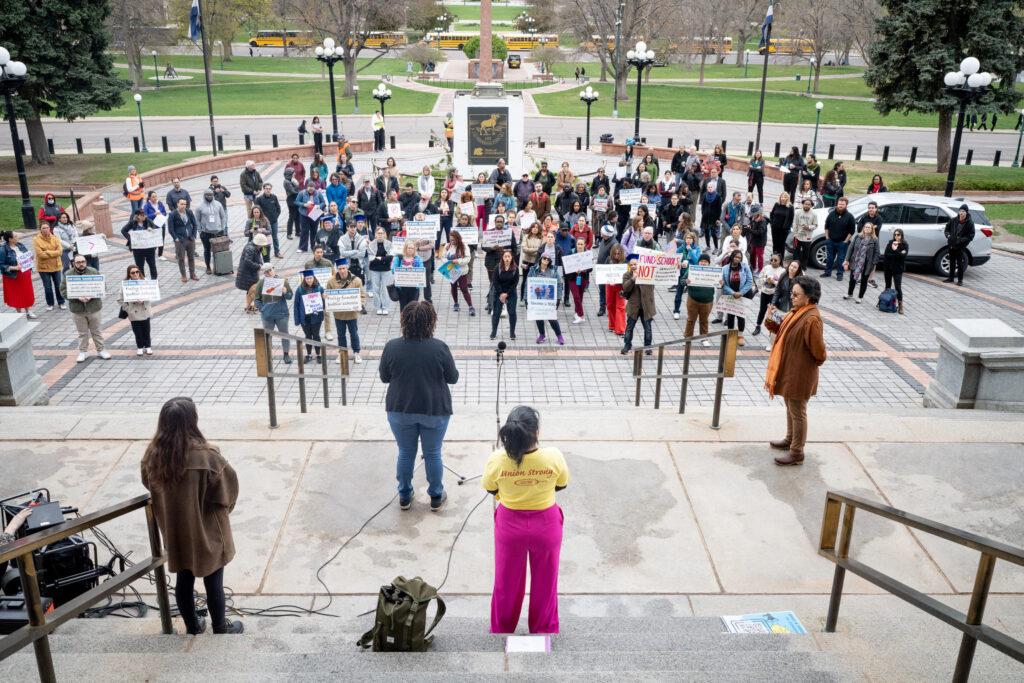
IDEA ensures students with disabilities get special education services in school. The title programs provide targeted support for things like schools with high numbers of students in poverty, English-language learners, adult students getting their GED and more.
But if there are future federal education cuts, Colorado will have almost no ability to plug the financial holes, according to Lisa Weil, executive director of the nonprofit Great Education Colorado.
“I see Colorado as a boxer in pretty good shape but with hands tied behind its back,” she said referring to TABOR’s prohibition of the state and local governments from raising taxes without voter approval. “The state is going to be taking these body blows from cuts to federal funding, and we have no way of defending ourselves. We have no way to protect our students from those kinds of deep cuts and it's a great concern.”
The fight over Diversity, Equity and Inclusion
Coming out of the gates, the administration threatened to take away funds from public schools and colleges if they were illegally promoting “diversity, equity and inclusion” or “gender ideology” with a goal of stopping “radical indoctrination.”
The challenge for many is that those terms haven’t been well-defined. The new department says programs that “advantage one race over another” are illegal. In an FAQ, the government says schools can participate in observances like Black History Month as long as they don’t engage in racial exclusion or discrimination. But it’s unclear under this new interpretation of federal civil rights law whether targeted support to close gaps in test scores between Black students and white students, for example, or reading and discussing a book about the Latino experience, are illegal.

In early April, the administration sent states a certification letter to sign, attesting that they are not using “illegal DEI practices.” The Department of Education said it wanted to ensure states are complying with the new administration’s interpretation of Title VI of the Civil Rights Act and with the U.S. Supreme Court’s 2023 decision making it illegal for universities to consider race as a factor in college admissions.
“Unfortunately, we have seen too many schools flout or outright violate these obligations, including by using DEI programs to discriminate against one group of Americans to favor another based on identity characteristics in clear violation of Title VI,” said the Department’s acting Assistant Secretary for Civil Rights in a memo.
Colorado declined to require the state’s 178 school districts to sign the letter. Commissioner of Education Susana Córdova said they are already in compliance with Title VI.
“I would be uncomfortable signing a certification that lacks definitions and clarity around what is and is not prohibited,” she said. Córdova said, however, she said she herself would send assurance to the Department that the state is in compliance.

Recently, however, three federal courts temporarily blocked the certification requirement and the government’s attempts to ban racial diversity efforts in K-12 schools and colleges, after several groups filed lawsuits challenging the Trump administration’s interpretation of Title VI.
All the new federal directives and legal wrangling have been overwhelming and anxiety-inducing for educators. In order to survive, Denver English teacher Moira Casados-Cassidy said many teachers have adopted a detached reaction.
“It feels very disconnected from the reality that we're living in the classroom,” said Casados-Cassidy, who works daily with 150 to 175 students depending upon the semester.

“We don't have time to pursue political agendas. The idea that when teachers welcome students from different backgrounds that we're somehow doing something wrong does feel absurd because it's so foundational to what we do in the classroom. If a kid doesn't feel respected, if they don't feel at home, they're not going to learn.”
She believes teachers are more committed now to their mission as teachers.
“We are working every day to meet the urgent needs of hundreds of kids and that's what we've committed our lives to,” she said. “Whatever goes on in Washington is going to continue to go on and the purpose that we have here is, I think, much greater than that.”
Civil rights enforcement: new priorities and larger caseloads
One group has felt the new administration’s education changes in a very personal way: Families with children with disabilities, or whose children have been racially or sexually harassed or bullied, who have pending investigations with the Department of Education’s Office for Civil Rights.
OCR upholds Title VI of the 1964 Civil Rights Act and Title IX, which prohibit discrimination based on sex in education programs.
After massive layoffs within the OCR and the shuttering of seven regional offices, Denver’s regional caseload ballooned. In addition to 1,200 existing cases, the local office is now handling an additional 2,200 open investigations from other states. A typical caseload per investigator would be 30 to 40; it’s now about 150 or more.
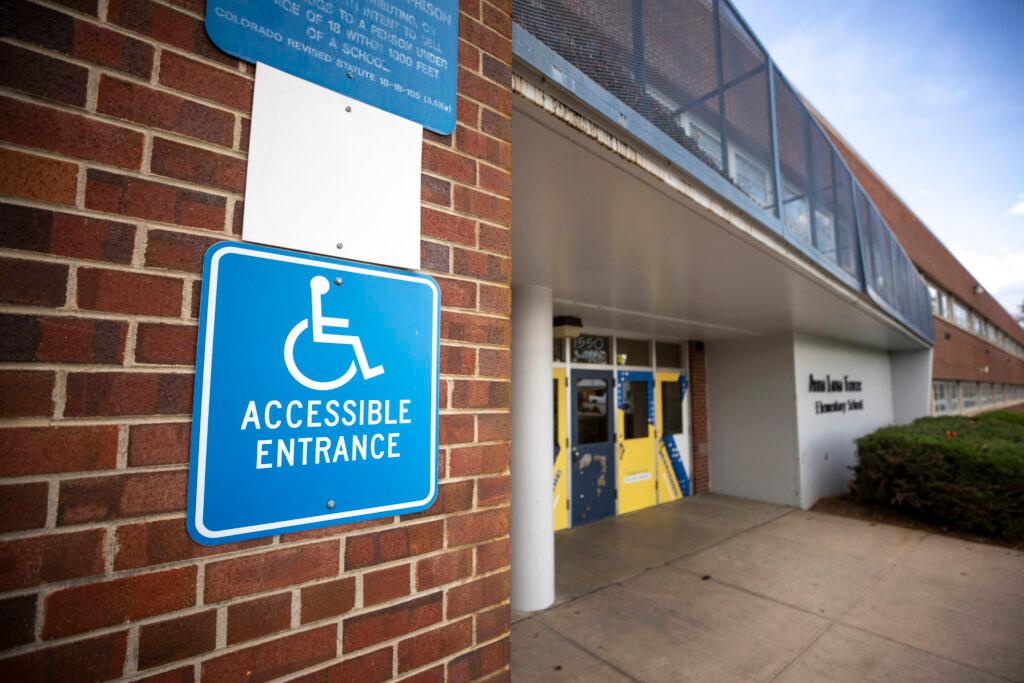
One Colorado father, who did not want to be identified, fearing retaliation, said the office is a lifeline for families with disabled children. Schools weren’t providing required accommodations for his child with physical disabilities.
“These violations took a big toll on our child and our entire family,” he said. “We needed OCR to help hold the districts accountable to their legal obligations to provide free and appropriate public education.”
His family has been “devastated” by the cuts to OCR and believes children with disabilities will fall further behind with no accountability or recourse. He hasn’t heard from his OCR attorney since early March and his hope is dwindling.
“We feel like the current administration wants to ignore or erase any hope for our children's future. It feels cruel and heartless. Many parents in our community are heartbroken. Our kids are already often marginalized and our kids feel even more so now.”
The federal website for pending investigations hasn’t been updated since mid-January.
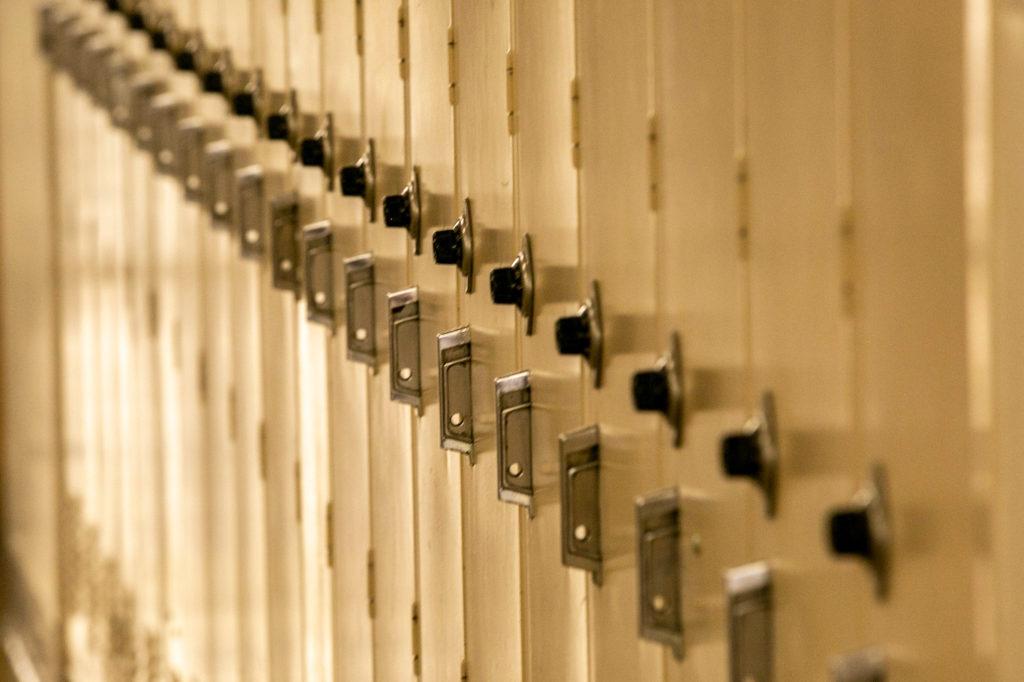
“With the diminished staff there, that just is a concern that families are not going to have the remedies that they might have had,” said Kathy Gebhart, a Colorado state school board member. “I am concerned that we're going to see more of a requirement that you have to ‘pay to play’ to get your rights enforced.” She means families may have to file their own lawsuits to get any change.
The administration has shifted the focus of its civil rights enforcement to things like eradicating gender neutral bathrooms, ending transgender athletes' participation in women’s sports, investigating antisemitism and curbing alleged discrimination against white students.
In one of its first acts under the new president, the office launched an investigation into a student-proposed all-gender bathroom at Denver’s East High School. It alleges that the conversion of a girls’ restroom for this purpose would violate Title IX, which prohibits sex discrimination. The University of Colorado’s Colorado Springs campus is also one of 50 universities OCR is investigating for working with a nonprofit that helps racially diverse doctoral students in business find employment.
What’s happening in higher education:
Colorado college students seeking federal financial aid and navigating student loan repayment are in what some have described as a “landscape of uncertainty” right now. Some of the problems predated the Trump administration, but signals are starting to emerge that the hammer is dropping, at least on student loan borrowers.

FAFSA completion rates up, but some families hesitate
The administration has eliminated around 600 positions in the office overseeing financial aid and student loans. Shannon Webber, president of the Colorado Association of Financial Aid Administrators, said some administrators have reported websites down, long hold times, and weeks elapsing when schools receive no FAFSA records back from the federal government to process students. But she reported that in general, administrators are not seeing a lot of issues or delays right now.
“The lack of clarity has provided a lot of concern, but in actual practice, our ability to administer federal financial aid has basically remained unobstructed,” agreed Ryan Grodman, director of financial aid and scholarships at the University of Colorado Denver. “It’s working as expected and on time at this point.”
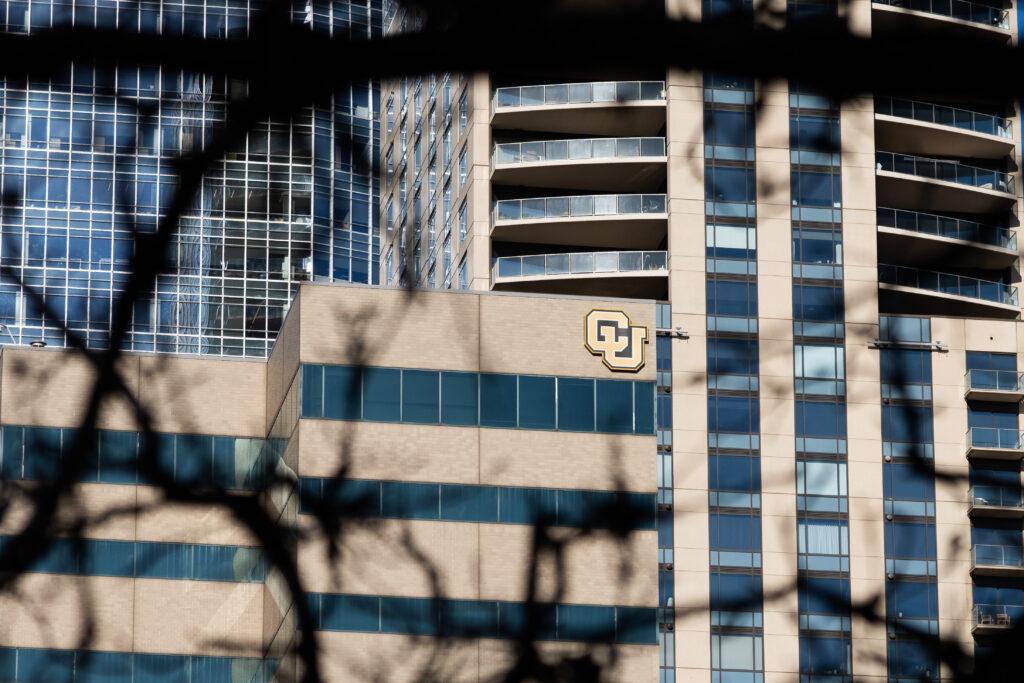
FAFSA completion rates are up compared to this time last year, but that’s mainly due to working out the kinks with the new simplified form after its rocky launch last year.
Still, schools with high numbers of students in mixed-immigration-status families have seen a slowing of FAFSA completions.
“Compared to previous years, there's more hesitancy on the part of parents to complete the forms and just wanting more reassurance about how their information will be secured,” Natasha Garfield with the Denver Scholarship Foundation said.
In the past, the U.S. Department of Education has historically committed to never sharing data on the FAFSA form with immigration enforcement, but some students are worried the new administration could change that policy. The Colorado Department of Higher Education has expanded the ability of students to apply for the state’s version of the form, CAFSA, but CU Denver’s Grodman said FAFSA offers the widest opportunity for funding.
“If students and parents are not willing to provide the information on either form, then a lot of doors are unfortunately closed to students.”

House Republicans eye Pell grants
The Trump administration has stated that Pell Grants and other forms of aid will continue to be available, but students and advocates worry. The House Republican budget proposal holds total Pell grant funding flat but would halve the funding for federal work-study grants and other grants for students with exceptional needs.
A newly introduced GOP bill would raise the number of credit hours needed to qualify for Pell grants. Critics warn that it would wallop part-time students at community colleges. Students in workforce programs, however, would be exempt from the credit hour requirements. The bill would also make students in some weeks-long training programs eligible for Pell grants.
Grace period has ended for student loan repayments
Colorado has more than 780,000 people with outstanding student loans, who owe a total $33.7 billion. About 13 percent of those loans are in delinquency.
Trump paused loan repayments and collections in 2020 to help people weather the pandemic. Biden continued the policy through his whole presidency, but that grace period is coming to an end. The new Trump administration just announced if defaulters don't start making payments by May 5, they’ll start losing tax refunds, have their wages garnished and could see their future Social Security benefits reduced.
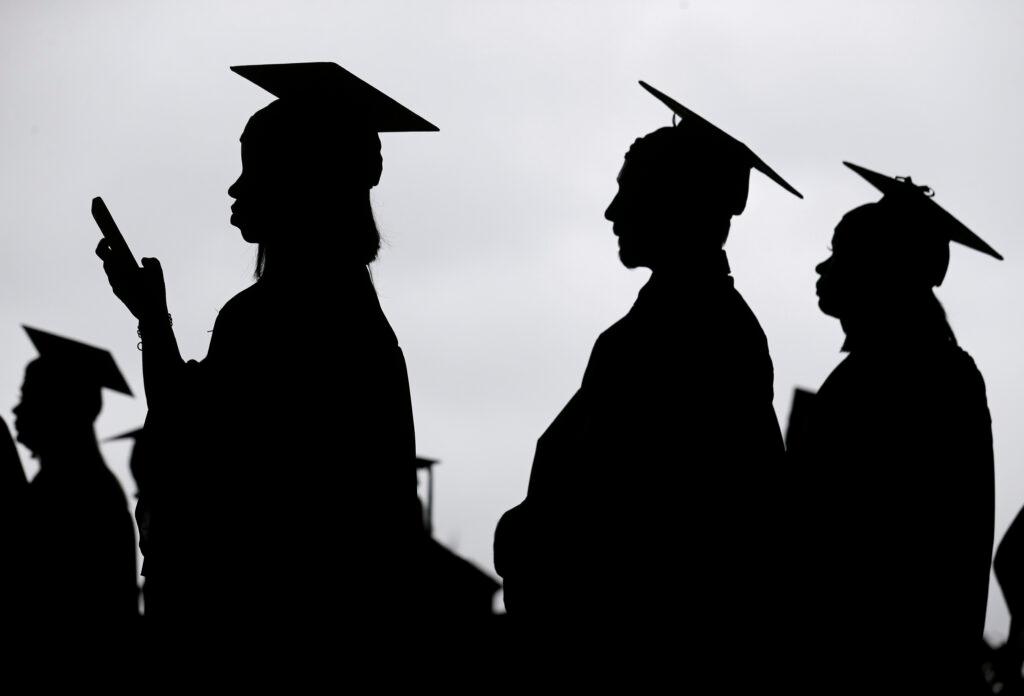
“Borrowing money and failing to pay it back isn’t a victimless offense,” Secretary of Education Linda McMahon said. “Debt doesn’t go away; it gets transferred to others. If borrowers don’t pay their debts to the government, taxpayers do.”
A new GOP bill would reduce the options student loan borrowers have to pay back their loans from about a dozen to two. A court injunction froze a popular Biden-era repayment program called SAVE. More than 134,000 Colorado borrowers in the SAVE program are currently in forbearance. Republicans want to replace that program with one that would increase students’ monthly payments but wouldn’t raise their balance as long as payments continue.
Problems with the $1.6 trillion federal student loan portfolio involving 43 million borrowers predated Trump. But those who could help solve the bureaucratic logjams aren’t there anymore.
“Everybody that I could have talked to in my world got fired,” said Colorado-based student loan attorney Karen Cody-Hopkins. She relied on a Rolodex of veteran staffers to help her solve complex student loan cases.
Trump also recently announced the student loan portfolio will be moving from the gutted Department of Education to the Small Business Administration, which itself is undergoing a 43 percent reduction in staffing.
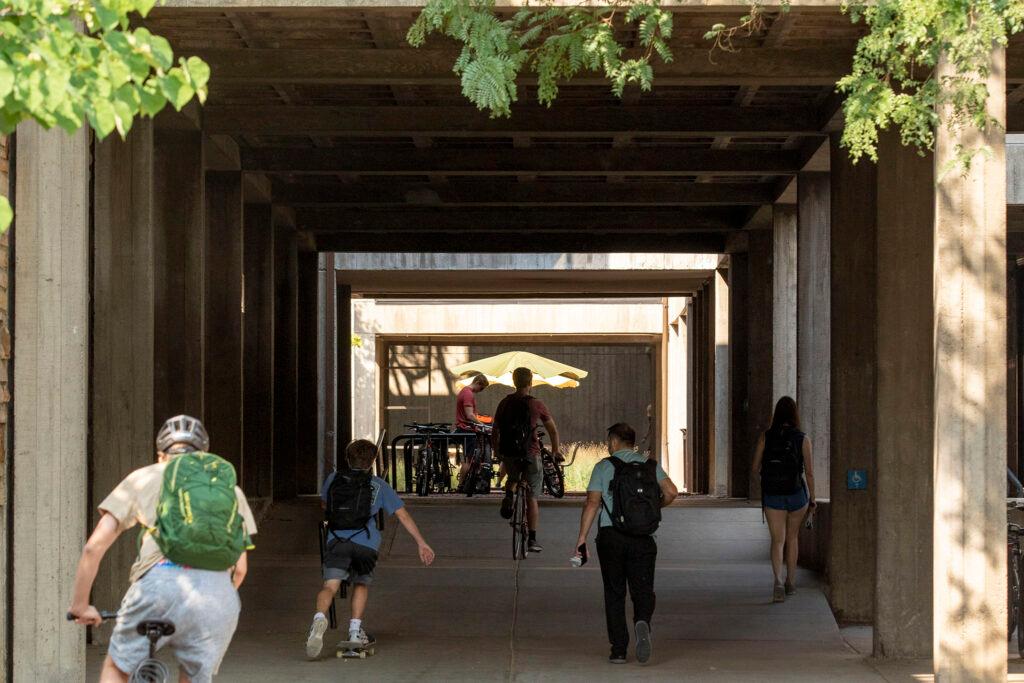
Anti-DEI efforts and federal spending cuts
Colorado’s colleges and universities have been whipsawed by research grants revoked and then restored, as the administration seeks to cut back on federal spending and enact the president’s anti-DEI orders.
Lawsuits have started some money flowing again, but other cases are still underway, and there is still considerable uncertainty regarding the new administration’s directives on diversity, equity and inclusion.
Federal officials have threatened to pull federal funding from institutions that continue to offer certain programs and support.

The administration wants to see colleges and universities eradicate all considerations of race in scholarships, prizes, financial aid, hiring, admissions, compensation, promotion, administrative support, discipline, housing and graduation ceremonies. It cites a 2023 Supreme Court decision prohibiting using race as a factor in college admissions, although that interpretation is being challenged in court.
Colleges maintain they are already complying with current civil rights laws. But in response to the administration, some Colorado universities have renamed websites, ensured that student cultural groups are open to all students, and rebranded departments to comply with federal guidelines. Colorado State University went a step further to “shift some employee job duties and human resources policies and processes.”
The state’s research universities are heavily dependent upon federal research money. The University of Colorado, for example, has 5,800 research awards totaling nearly $950 million. It’s lost $25.5 million in federal funding because of terminated awards so far and twelve other grants have been given a stop-work order. Schools are also bracing for potential cuts in science programs and grants from the National Institutes of Health.
The uncertainty about the future is causing departments to take a cautious approach to accepting new graduate students.
“It's really a challenging situation because we don't know what's coming,” Todd Saliman, president of the University of Colorado, said at a recent Board of Regents meeting. “We know what we're facing now, but we see what other institutions are facing and that creates significant anxiety.”
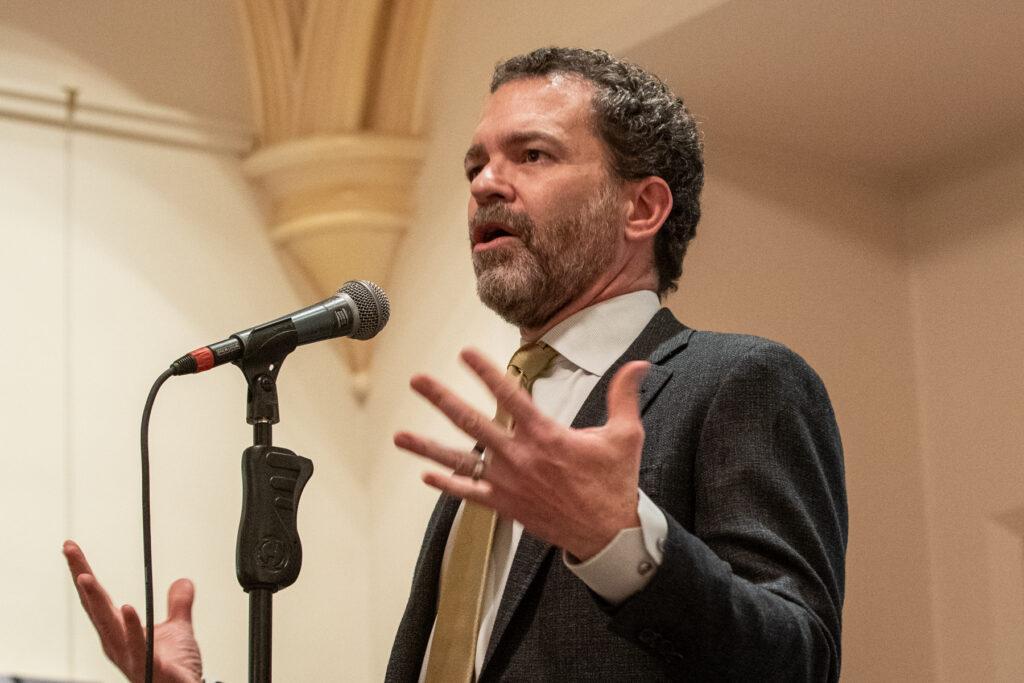
Colorado State University has had approximately 25 awards, worth $4.4 million, terminated, but the university expects that number to shift.
“The federal landscape is changing quickly, and the impacts to funding remain fluid due to a variety of considerations, including pending lawsuits, court injunctions and ongoing agency grant reviews,” it said in a statement.
International students caught in a visa cancellation-whipsaw
As of April 15, the Trump administration had revoked visas for more than 45 international students in Colorado: 16 at CSU and 22 at CU. At the time, no rationale was given by the Department of Homeland Security for the revocations, according to the universities. University officials worry that the sense of fear being created will discourage overseas students from studying in the U.S.
Last week, however, the Trump administration began restoring some of those cancelled student visas, including some in Colorado, after a wave of lawsuits arguing they were unconstitutional.
Funding for public media is at stake. Stand up and support what you value today.

